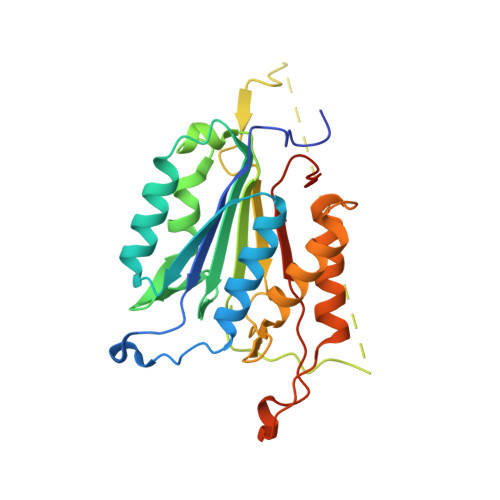3,4-Dihydropyrimido(1,2-a)indol-10(2H)-ones as potent non-peptidic inhibitors of caspase-3
Havran, L.M., Chong, D.C., Childers, W.E., Dollings, P.J., Dietrich, A., Harrison, B.L., Marathias, V., Tawa, G., Aulabaugh, A., Cowling, R., Kapoor, B., Xu, W., Mosyak, L., Moy, F., Hum, W.T., Wood, A., Robichaud, A.J.(2009) Bioorg Med Chem 17: 7755-7768
- PubMed: 19836248
- DOI: https://doi.org/10.1016/j.bmc.2009.09.036
- Primary Citation of Related Structures:
3H0E - PubMed Abstract:
Cysteine-dependant aspartyl protease (caspase) activation has been implicated as a part of the signal transduction pathway leading to apoptosis. It has been postulated that caspase-3 inhibition could attenuate cell damage after an ischemic event and thereby providing for a novel neuroprotective treatment for stroke. As part of a program to develop a small molecule inhibitor of caspase-3, a novel series of 3,4-dihydropyrimido(1,2-a)indol-10(2H)-ones (pyrimidoindolones) was identified. The synthesis, biological evaluation and structure-activity relationships of the pyrimidoindolones are described.
- Chemical Sciences, Wyeth Research, CN 8000, Princeton, NJ 08543, USA. havranl@wyeth.com
Organizational Affiliation:

















